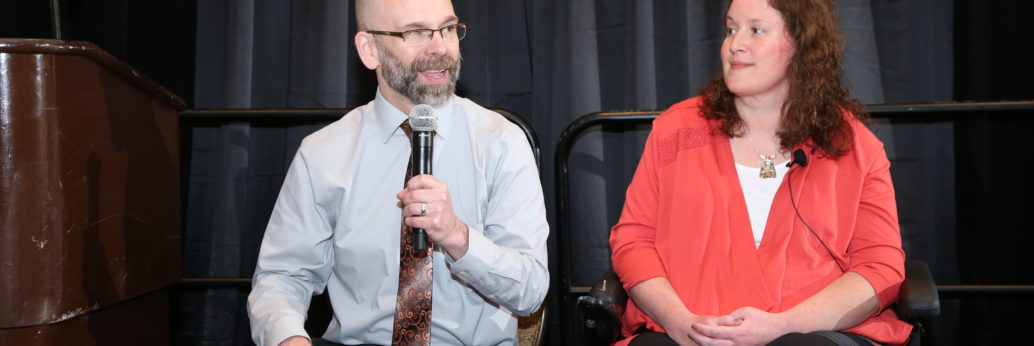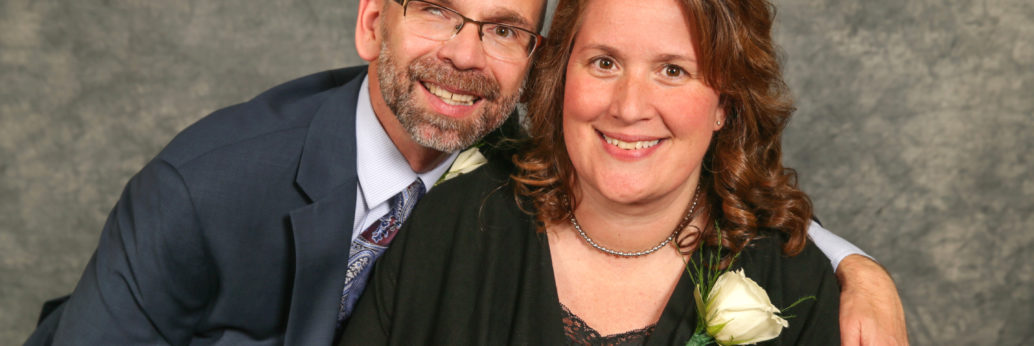Foreshadowing – the organization and presentation of events and scenes in a work of fiction or drama so that the reader or observer is prepared to some degree for what occurs later in the work.
Did you celebrate World MS Day on May 25?
When I think back on my past life, I really wouldn’t have cared about it. After all, 14 years ago I was a self-absorbed recent college graduate trying to plan for my future. Maybe not caring is the wrong way to put it. I just didn’t know anything about MS or understand why it should matter to me.
Fast forward to today in 2011 and Multiple Sclerosis is almost always on my mind. Not only do I live with this disease, but my husband, Dan, also has MS. So do some of my closest friends.
But what does that earlier definition of foreshadowing have to do with MS? Allow me to show you, and maybe it’s a stretch, but I believe there are some concrete examples of the foreshadowing of MS and its progression present in my 36 years on this earth. See if you agree:
When I was about 10 years old, my family took a trip to AutoWorld, the cutting edge amusement park in Flint, Michigan. It was great! I have fun memories of riding the park’s Ferris wheel, seeing different exhibits, and spending time with my parents, brother, and my Granny.
Granny spoiled me like grandmothers tend to do, and at AutoWorld that day, she bought me a large stuffed teddy bear. It was adorable, but eventually its novelty wore off so it got packed away in my bedroom closet. Some years later, after my MS diagnosis, my parents moved from that house. When I packed up my old room, I found that bear tucked away in my closet. He was smaller than I remembered and was wearing a button on his chest. Do you know what kind of button it was? One with a National MS Society logo on it.
Which is a strange coincidence in and of itself, but as I learned not long after my diagnosis, that same wonderful Granny was told some 40 years earlier she most likely had MS. Genetics or foreshadowing? Or perhaps, a little of both?
Another example is an exchange I had with a fellow classmate during a college English course. As I’ve mentioned in previous blogs, I have struggled with being overweight my entire life. During college, I was at my heaviest and my most self-conscious. One morning I arrived to my class lecture hall and found a man sitting in a wheelchair at the end of the row of seats where I planned to sit. Rather than embarrassingly trying to squeeze myself behind him or simply asking him to move out of my way, I walked completely around the classroom and ended up plopping myself down about 3 seats away from him.
Once I sat down, he looked at me and testily exclaimed, “You know, I can move.”
This was embarrassing and made me angry. “Duh, of course you can move,” I angrily thought to myself. Geez, I was just being nice and trying not to bother him. And now, more than 14 years later when Dan or one of caregivers try to squeeze around me rather than asking me to move, I testily exclaim that same phrase. Ironic, or is it another example of foreshadowing?
My final example is found in the phrase I used to comfort me early on after my MS diagnosis. When I feared my MS might worsen and make me unable to walk, I found comfort in one thought. I told myself I’d be okay if I couldn’t walk because after all, “Wheelchairs are just another means of transportation.” Now that it has been over 9 years since I walked, I’ve realized a wheelchair is nowhere close to “just another means of transportation.”
The earlier definition of foreshadowing mentioned its application in a work of fiction. But as you’ve read in my case, foreshadowing seems to apply to my reality and life with Multiple Sclerosis.





Good post! I don’t have a ton of foreshadowing in my life, well at least not about MS.
There is one thing that stands out to me though kind of on the same wavelength. For some reason before MS my “biggest fear” my whole life was having to be in a wheelchair. I don’t even know why exactly, and my perspective has changed so much that it seems rather silly now.
I can honestly say my biggest fear now is not being in a wheelchair. Being in a wheelchair as I thought of it then, merely not being able to use ones legs but having everything else, looks pretty good at times.
Even though I walk, I’ve had enough experience with difficulty walking to know that if I ever need a wheelchair, the wheelchair itself will be a very welcome tool compared to the alternative of not having one.
I go between using a walker and my scooter as my usual mode of transportation, and I’ve had experiences such as yours. I don’t like when people try to work around me, and I usually just say something like, “Oh look at me, sucking up all the space. Here let me move this thing out of your way.” It puts them at ease, and makes me feel more ‘abled’ than ‘dis.’
Peace,
Muff
Jennifer,
I appreciate your writing. It is an important part of life, accepting our “New Reality”, life as we now know it without expecting to get worse. I think it’s wonderful that you and your husband have found “Purpose in your circumstance” with your blog as I have with msrelief.com.